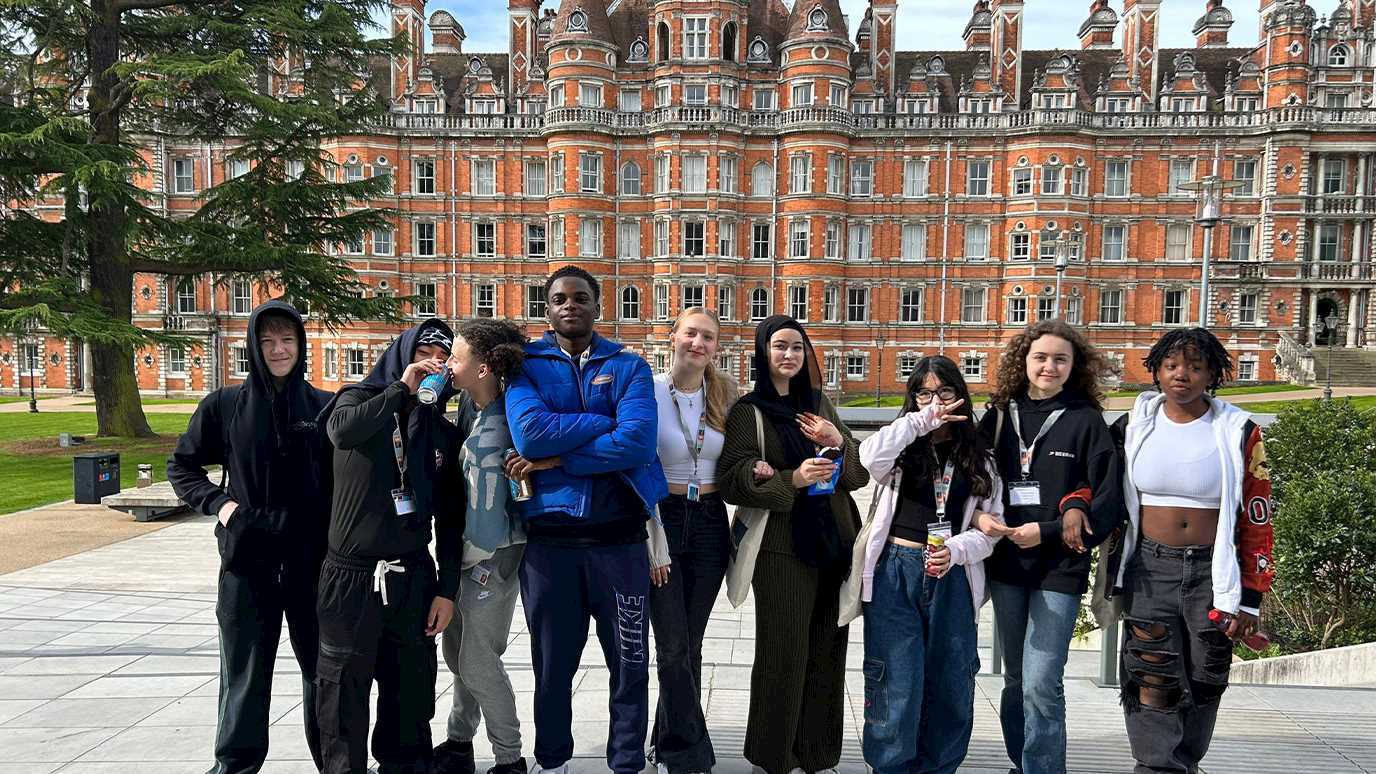New research published in the British Journal of Management (BJM), led by a Royal Holloway academic, suggests that organisations who are willing to adapt their strategy and adopt new AI solutions will see higher levels of creativity.

The study was led by Dr Nisreen Ameen from the School of Business and Management at Royal Holloway, University of London, Director of Digital Organisation and Society (DOS) research centre, in collaboration with four researchers from other UK and international universities.
Many organisations, such as Netflix, Spotify, and Lexus, have used AI for developing new products and services. Lexus produced the first filmed advertisement written entirely by AI, having trained the technology by using data from 15 years of their award-winning advertisements for luxury vehicles.
Generative AI that supports creative processes by generating ideas, words, or images includes services like ChatGPT, Jasper, and Writesonic. Generative AI can help organisations build powerful, personalised content and customer experiences that can help organisations to be creative.
Despite these creative benefits, 85% of AI and machine-learning projects fail to produce a return for the organisation. To turn their use of AI into a success, organisations need to restructure teams, develop their AI capability by acquiring new skills, and promote agility in the workforce. A key challenge for managers is the need to make effective use of their resources, capabilities, and external support to successfully implement AI solutions.
The aim of this research was to determine whether the combination of two factors – strategic agility and AI capability – would directly correlate to higher levels of creativity. Previous research had focused on either strategic agility or AI capability in isolation, without exploring the effects of both in tandem.
AI capability is an organisation’s ability to select, orchestrate, and make use of its AI-specific resources: combining AI and human intelligence. Meanwhile, strategic agility is defined as an organisation’s ability to invent new business models and categories, as opposed to rearranging old products and categories. High strategic agility in organisations is associated with stronger employee commitment and motivation.
The researchers collected responses to several questions around strategic agility, AI capability and creativity. The survey was distributed to managers of 600 organisations in China, collecting responses to a series of questions from one manager per company. These companies were diverse in their nature, ranging from financial services and IT organisations to sales, marketing and health organisations.
By determining various companies’ engagement with AI solutions, as well as their readiness to adapt to new opportunities – or strategic agility – the researchers were able to determine how these factors combined can increase levels of product and service creativity.
The higher levels of creativity were measured by taking the survey responses and using complex structural equation modelling (SEM) methods that show cause and effect. This modelling was used to demonstrate higher level of ‘new product creativity’ – which was an increase in developing new and interesting products, offering new product ideas and developing products that encourage fresh thinking.
It was also used to demonstrate an increase in ‘new service development performance’, which focuses on the increase in overall speed of new service development projects and the development of new services, with fresh ideas, that meet customer requirements.
By showing that the coupling of strategic agility and AI capability can improve new product and service creativity, the researchers established the significance of combining two previously independently explored concepts in tandem. The researchers found that human-AI collaboration and adaptability are inherent in this coupling, allowing them to develop new product and service ideas to stay ahead of competitors.
Companies that possess the required tools needed to harness AI, while maintaining flexibility and efficiency are more likely to see better results when using AI for creative purposes. This enables these organisations to gain a competitive advantage over competitors who lack the capability, or the adaptability, to do so.
Dr Nisreen Ameen from the School of Business and Management at Royal Holloway said: “Artificial intelligence offers a great opportunity for organisations in various industries to enhance their product and service creativity. However, finding effective ways to utilise the rapidly increasing AI capabilities and more effective human-AI collaborations on various tasks remains a challenge which requires further research.”
Professor Christos Tsinopoulos, Executive Dean of the School of Business and Management added: “Engagement with AI is still something new and has mainly focused on automating routine functions. The work by Professor Ameen and her team shows how businesses can prepare to use AI to boost their creativity and improve the effectiveness of their new product development processes.
“This is an outstanding example of how our researchers aim to find answers to some of the more challenging questions associated with how AI can be integrated in businesses to improve performance. Such work guides our courses which prepare the business leaders of the future. Many congratulations to the team.”
























